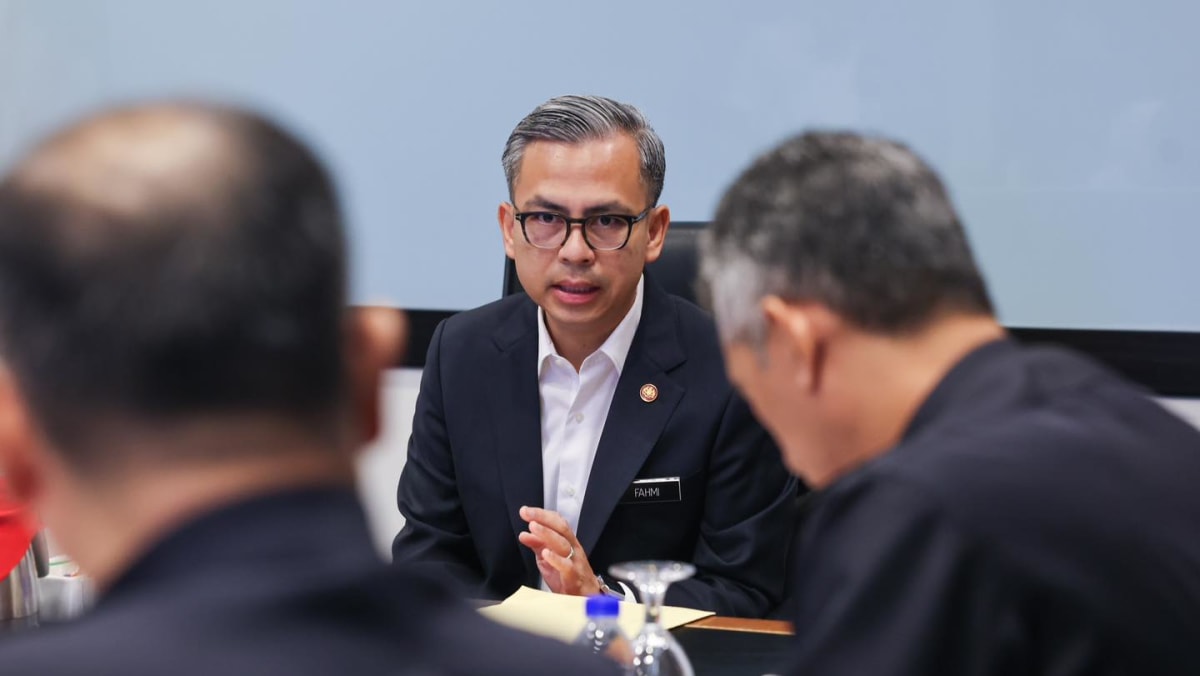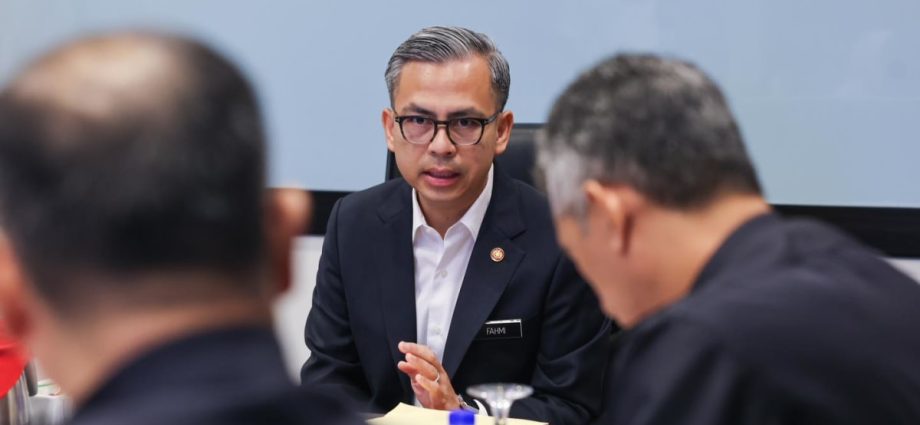
For instance in March 2018, then-prime minister Najib Razak and his ruling Barisan Nasional (BN) government introduced a controversial Anti-Fake News Act that set out fines of up to RM500,000 and a maximum of six years’ jail for anything the government defined as “fake news”.
The move was condemned by the opposition – including Mr Fahmi’s Pakatan Harapan coalition – and political activists who feared it would be used to muzzle opinion that BN disagreed with.
The opposition made scrapping the law a key electoral promise in that year’s election that was held in May. After claiming a surprise victory, the newly-installed administration repealed the law in August 2018.
“I used to stand against tighter regulation,” Mr Fahmi told CNA on Monday.
“As a reformist, as somebody who fought against the status quo at that time, I’m very mindful of the things that we do today, how will it impact freedom of speech tomorrow and beyond.”
But Mr Fahmi said the TikTok influencer’s suicide was the “proverbial straw that broke the camel’s back”. The incident made the government rethink its relationship with online service providers and users, he said.
Meanwhile, Mr Anwar on Tuesday assured that the licensing regime will not curb freedom of speech in Malaysia, but instead tackle the spread of crime and harmful information online.
“This country is a democratic country, freedom must be given to people to voice their views, whether they agree, criticise or oppose,” he was quoted as saying by the Malay Mail.
“When we say we must block (such posts), it is said to restrict freedom. Is it freedom to cheat? Freedom to steal and cause others to kill themselves?”
What about those who support the move?
Dr Noor Nirwandy Mat Noordin, a security and political analyst from Universiti Teknologi Mara’s Media and Information Warfare Studies Centre, told Bernama that the “well-timed” move is needed to balance the social media landscape, especially in relation to civil and criminal cases as well as cybercrimes.
“It is also crucial to ensure control over emerging elements such as artificial intelligence (AI) and, more concerning, generative AI that can produce misleading information or content used for malicious purposes,” he said.
Malaysians Against Rape, Assault and Snatch Theft founder Dave Avran told The Star that the move was a good measure for the country.
“Cybercrimes such as cyberbullying should be dealt with decisively to prevent more people from becoming victims,” he said, calling for more comprehensive regulations on social media and internet usage.
Following the announcement of the licensing regime, Mr Fahmi made a working visit to Singapore to meet with social media platforms.
In a Facebook post on Monday, he said he also discussed with Singapore’s Digital Development and Information Minister Josephine Teo the country’s experience regulating social media and the challenges it faced.
“It is not too late for us to ensure that social media platforms are responsible for the criminal activity that takes place on their platforms,” he wrote.
How are other countries regulating social media platforms?
Singapore’s Protection from Online Falsehoods and Manipulation Act (POFMA) allows the government to compel social media platforms to post a correction on or stop publication of what it deems as falsehoods.
It can also use the Online Criminal Harms Act to issue codes of practice to require social media platforms to implement systems, processes or measures to counter the commission of offences like online scams.
If, despite the codes of practice, there continues to be a persistent risk of scams on the platform, the government can issue an implementation directive to the platform to reduce this risk.

